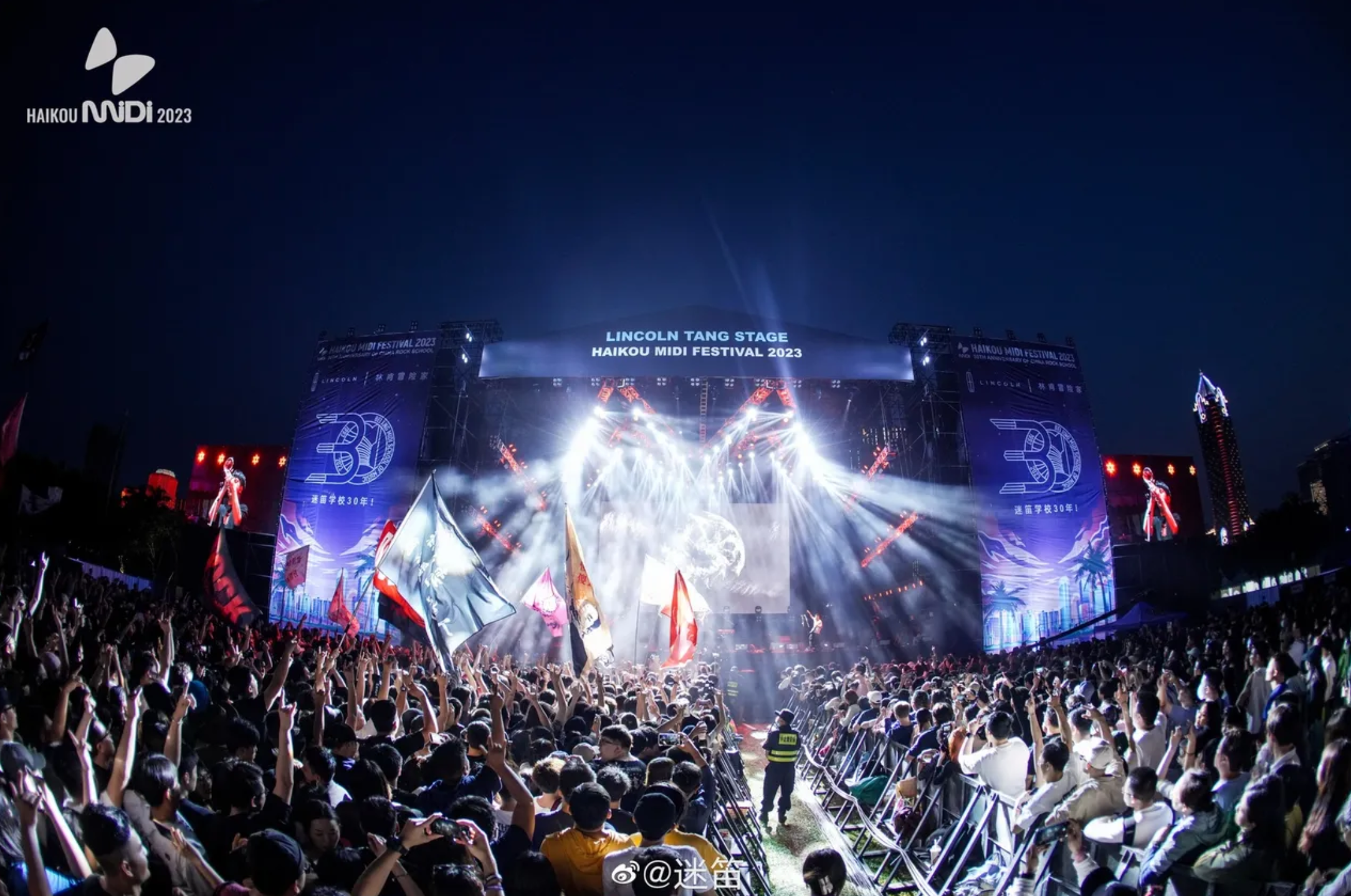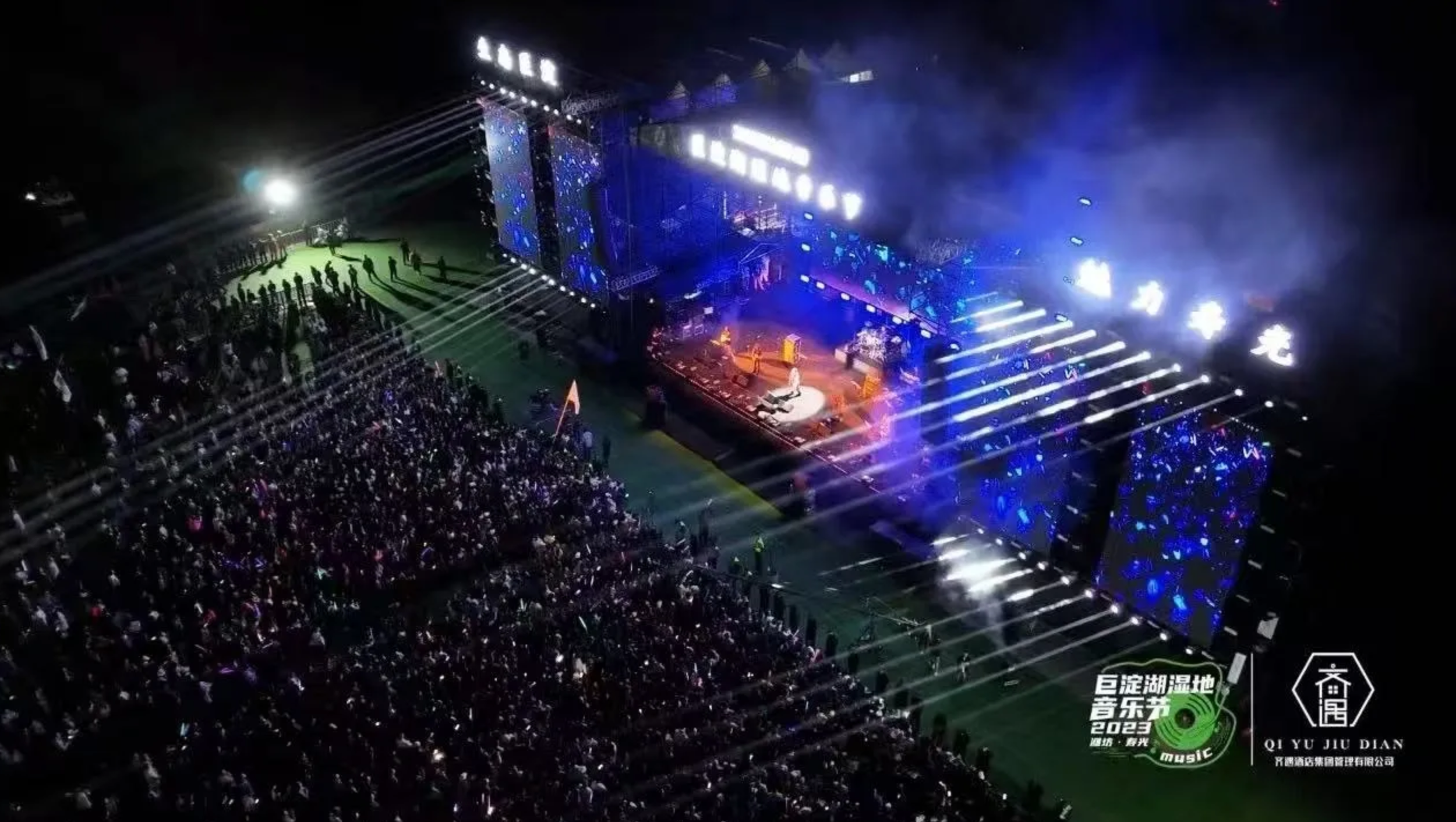To Be or Not to Be: The Dilemma Facing Chinese Concert Promoters by Henry Kong
"It’s nice to be back!" With these electrifying words, Kanye West ignited the stage in Haikou, marking a night that few had believed would ever materialize. Over 30,000 attendees filled the venue, followed by an equally successful show the following weekend. Does this signal the revival of China's live entertainment industry after years of stagnation? The answer remains elusive.
Live music in China had an unassuming start. It was not until 1985, following the country’s economic reforms, that the first Western band—Wham!—performed at Beijing’s Workers' Stadium. That moment marked the beginning of an industry that would develop rapidly, though under tight regulatory scrutiny. China, like the rest of the world, proved to have an insatiable appetite for live music, albeit with significant governmental restrictions.
Legend has it that in the early 1990s, when the U.S. Embassy invited blues icon B.B. King to perform at the Hard Rock Hotel in Beijing, Chinese rock pioneer Cui Jian reportedly had to sneak in through a bathroom window just to witness the legend perform. By the late ’90s, global icons like Michael Jackson expressed interest in performing in China, with Jackson himself allegedly requesting to hold a concert in Tiananmen Square to achieve record-breaking attendance. Considering that Yanni had just performed at the Forbidden City, such a proposal did not seem entirely outlandish. Nevertheless, it was ultimately denied.
MIDI Music Festival in Haikou, 2023
Despite the restrictions, China saw the rise of its own music festival culture. The MIDI Festival and other major events in cities like Beijing and Shanghai became the heartbeat of the country’s growing music scene. Ask any middle-aged music fan in Beijing, and chances are they will eagerly recount their most cherished MIDI Festival memory from two decades ago. However, everything changed in 2008 when Björk made a political statement during her performance, triggering a wave of intensified censorship on live concerts. As a promoter, I must admit that her actions had lasting repercussions. The timing was particularly unfortunate, as the government had reportedly begun lifting bans on previously blacklisted artists ahead of the Beijing Olympics. Björk’s incident reversed much of that progress, leading to tighter scrutiny and restrictions on foreign artists.
The industry subsequently shifted towards commercialization. For Western bands touring Asia, China remained an enticing yet elusive destination. Many acts opted to perform in smaller venues, eager to connect with their Chinese fanbase. I vividly recall Metallica’s 2013 concert in Shanghai—a defining moment for me as both a fan and an industry insider. I secured my tickets the moment they went on sale, witnessing James Hetfield belt out "Fade to Black" and "Enter Sandman" in a night I will never forget. So overwhelmed was I by the experience that I impulsively extended my trip to attend their second show. Due to censorship concerns, Kirk Hammett had to perform "Master of Puppets" solo on his guitar the following night, but the energy in the arena remained electric.
Fast forward to 2025, and the live entertainment industry in China is at a crossroads. The success of Kanye West’s concert in Haikou has sparked interest among second-tier cities eager to attract major international acts. Municipal governments are rolling out policies to entice global stars, while smaller tourist destinations are exploring festivals as economic boosters. The formula is clear: an influx of 20,000+ visitors over a single weekend can significantly stimulate local hospitality and food industries. China, in its post-pandemic era, is in search of its next "it" moment—Zibo found it in barbecue skewers, Harbin with its winter ice sculptures, and Gansu with its spicy mala tang. Now, Haikou has seized the moment with Kanye West. The question remains: Can China establish a lasting tourism boom through music festivals and concerts?
Weifang Judianhu Music Festival, one that I organized in 2023
A look at past attempts offers some insights. Roughly a decade ago, Zhangbei, a small town in Hebei Province, sought to transform itself into a music hub. Just two hours outside of Beijing, its vast prairies and semi-arid landscape resembled parts of the American Southwest. The local government launched the Zhangbei Grassland Festival, though its early years were marred by logistical nightmares, with artists struggling to find accommodations. Over time, however, the festival garnered over 200 million RMB in investment for infrastructure, turning it into an event drawing 30,000 attendees daily, with international acts like Clean Bandit and Jay Park gracing its stages.
Such successes keep local governments optimistic, though reality does not always align with expectations. The geopolitical landscape remains a factor—especially with the uncertainty surrounding U.S.-China relations following Donald Trump's re-election. As an industry insider, I remain hopeful. The resurgence of live entertainment in China is far from guaranteed, but if history has taught us anything, it is that music finds a way. The best, I believe, is yet to come.
About Henry Kong (Musician, Record Producer, and Concert Promoter)
A graduate of Indiana University, Henry Kong began his career organizing small-scale shows before embarking on his first China tour, performing at renowned festivals such as MIDI Music Festival and Strawberry Music Festival. While still in college, he promoted U.S. tours for prominent Asian artists, including Escape Plan, Song Dongye, HYUKOH (Kr), and Sunset Rollercoaster, securing performances at iconic venues like Irving Plaza, House of Blues, and Troubadour.
In the post-COVID era, Kong has been instrumental in bringing international acts to China, producing tours and festivals such as Inner Wave’s China Tour, Ju Dian Lake Music Festival, and HiFun Lantern Party, solidifying his presence in the global live music industry.



